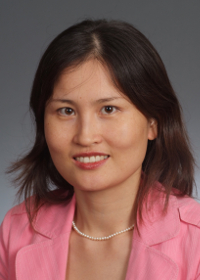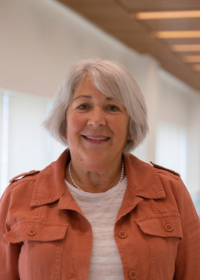In This Story
Medication-assisted treatment (MAT), now commonly referred to as medications for opioid use disorder (MOUD), such as buprenorphine, is a well-documented successful treatment for opioid use disorder (OUD). However, there are multiple barriers for clinicians to use MAT, including clinician lack of confidence in using the treatment, their own misconceptions about the patient population, and, until recently, federally required training. Additionally, there is a stigma associated with MAT and the patients who would most benefit from it. Improving access to MAT training and integrating it into clinician programs and curriculums may remove identified barriers, decrease stigma, and enable newly trained clinicians to treat patients.

To address these barriers, Professor and interim Director of the School of Nursing Cheryl Oetjen, the principal investigator, and Associate Professor Kyeung Mi Oh led the implementation of integrating MAT training into Mason’s Master of Science and Doctor of Nursing Practice nurse practitioner curriculum and evaluated its quality and impact. They found that MAT training reduced bias and stigma associated with MAT. The training improved graduate students’ attitudes toward people with OUD and students’ desire to pursue being an OUD MAT provider after graduation.
“The continued assessment and curriculum development of MAT training in nursing programs is crucial in fighting the opioid overdose epidemic. By providing nursing graduate students with this opportunity, we are increasing the number of clinicians interested in providing MAT, which contributes to improving access for underserved patients seeking MAT treatment with an increase in available providers,” said Oh.

Most students were satisfied with the training and felt the training was effective in integrating new knowledge related to MAT. The training included immersion into practice and integration of treatment for OUD. Researchers believe what they have learned can be beneficial to other nursing programs.
Feedback on the training program was obtained through required Substance Abuse and Mental Health Services Administration (SAMHSA) surveys and focus groups after training sessions to assess the quality of training, materials, instruction, and impact and usefulness of training.
Medication-assisted treatment 24-hr waiver training for opioid use disorder: Lessons learned was published online in the Journal of American Association of Nurse Practitioners in May 2023. Assistant Professor Megan S. Harvey, PhD in Nursing student Krista Beran, and DNP student Myriame Zamilus-Osabu were part of the research team. This research was funded by the SAMHSA.
